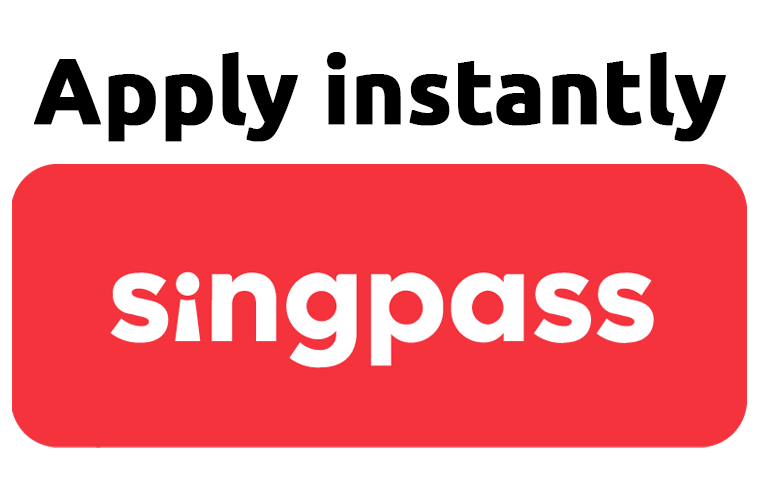Key Takeaways
- A debt consolidation plan helps to merge all your unsecured debts into one, making it easier to track payments.
- A DCP usually also comes with more favourable terms, allowing you to save on interest payments and fees/charges.
- You can also apply for a debt consolidation loan offered by licensed money lenders offer more lenient requirements and faster approvals.
- Besides DCPs, you may also consider other debt repayment options: Debt Management Programme (DMP), Debt Repayment Scheme (DRS), and Moneylender Debt Management Programme (MDMP).
If you’re juggling several high-interest unsecured debts and want a simpler way to manage your payments, a debt consolidation plan can help.
As the name suggests, a debt consolidation plan is a debt refinancing program designed to help individuals manage their debts more efficiently by combining them into a single loan with more manageable terms and interest rates. This allows you to simplify payments while potentially saving on interest costs.
In this article, we’ll explain all you need to know about debt consolidation plans in Singapore, including how they work, their benefits, eligibility requirements, and more.
Before diving in, you can check out Personal Loan Finder’s debt consolidation comparison page to explore the best debt consolidation plans from various legal loan providers in Singapore.
What are debt consolidation plans in Singapore, and how do they work?
Debt consolidation plans enable borrowers to consolidate all unsecured debts from multiple financial institutions into a single loan with a single financial institution, usually with a more favourable loan term and a structured repayment schedule.
When you obtain a debt consolidation plan from a financial institution, that financial institution will pay off your existing debts at one go. This includes credit card balances, personal loans, and other unsecured debts. Note that some unsecured loans, such as renovation loans, education loans, medical loans, and credit facilities granted for business purposes, are excluded.
In turn, you are left with a single loan to repay to the new lender over an agreed period, usually up to 10 years.
As such, a debt consolidation plan makes it easier for you to manage your monthly payments so that you don’t fall behind on your monthly payments. Since you’re only making one fixed payment every month, you also don’t have to deal with different payment due dates, interest rates or fees from multiple loans, helping you save money — and your sanity.
For example, instead of juggling multiple credit card and personal loan debt repayments from multiple banks, you make one fixed monthly payment to one bank. This payment often comes with a lower interest rate, reducing overall costs. Additionally, the fixed repayment schedule facilitates effective planning and budgeting.
Here’s a simplified breakdown of how the process works:
- Apply for a Loan: Submit your application with all required documents.
- Approval and Settlement: Upon approval, the lender settles your existing debts.
- Single Repayment: You make a single monthly payment to the new lender.
The debt consolidation plan amount you can get is the principal outstanding balance, including interest and any other fees/charges. However, if you’re applying for your first debt consolidation plan, you can also receive an additional allowance of up to 5% above your total debt consolidation plan.
This ≤5% allowance is mandatory for your first approved debt consolidation plan loan. It acts as a buffer against any incidental charges (e.g. interest or fees) that may occur from the time your debt consolidation plan is approved until the financial institutions receive payment via your debt consolidation plan.
Note that if the debt consolidation plan amount isn’t enough to cover your outstanding debts, you will be responsible for repaying any excess unsecured credit facilities.
In Singapore, both banks and licensed money lenders offer debt consolidation plans/loans, each with different eligibility requirements, interest rates, and fees.
What are the benefits of a debt consolidation plan?
Save on interest payments
By consolidating multiple loans into a single debt consolidation plan, borrowers pay a single fixed interest rate instead of managing multiple varying rates, resulting in significant savings over time.
Easier to keep track of payments
Instead of managing several monthly payments, borrowers only need to make one monthly payment over the loan tenure. This simplifies debt management greatly and reduces the likelihood of missed payments.
More flexible tenures
Debt consolidation plans in Singapore often offer repayment periods ranging from 1 to 10 years. A longer tenure can reduce monthly payments, making it easier to clear debts.
Save on miscellaneous fees and charges
Consolidating multiple debts can reduce multiple fees and charges —such as late payment fees and overdue interest charges— from various lenders/debts, thanks to a higher probability of on-time debt repayment every month.
Improve a negative credit score
Consistent and timely repayment of a debt consolidation plan can help rebuild your Credit Bureau Singapore credit score over time.
Who can apply for a debt consolidation plan?
To be eligible for a debt consolidation plan, you need to meet the following requirements:
- Must be a Singaporean or Singapore Permanent Resident who’s at least 21 years of age.
- Have an annual income between S$20,000 and below S$120,000, with a net personal asset of less than S$2 million.
- Your total interest-bearing unsecured debt exceeds 12 times your monthly income.
If you don’t meet the above criteria, you may consider applying with a debt consolidation loan money lender. Debt consolidation loan money lenders in Singapore generally have more lenient requirements and also offer faster loan approvals and disbursements.
For example, the minimum monthly income can be as low as S$1,200 to S$2,000, and foreigners may also be eligible to apply for these private personal loans.
Best debt consolidation plans in Singapore
| Debt consolidation plans | Interest rate/EIR | Fees | Repayment period | Citizenship requirements |
| DBS/POSB Debt Consolidation Plan | From 3.58% p.a. (EIR 6.56% p.a.) | Processing fee: S$99
Early termination fee: 5% on the outstanding at point of termination Late fee: S$90 |
1 to 8 years | Singaporeans or Singapore PRs |
| UOB Debt Consolidation Plan | From 4.50% p.a. (EIR 8.22% p.a.) | Processing fee: S$0
Late payment fee: S$90 Full repayment fee: from 5% to 8% of outstanding balance |
Up to 8 years | Singaporeans or Singapore PRs |
| OCBC Debt Consolidation Plan | From 4.50% p.a. (EIR 8.06% p.a.) | Late repayment charges: S$200
Termination fee: 5% outstanding loan amount |
36 to 96 months | Singaporeans or Singapore PRs |
| HSBC Debt Consolidation Plan | From 4.50% p.a. (EIR 8.0% p.a.) | Processing fee: 1% of the approved loan amount, minimum S$88
Early repayment fee: 5% of the redemption amount Overdue interest: 2.5% and prevailing interest on the overdue amount Late payment fee: S$120 per month |
1 to 10 years | Singaporeans or Singapore PRs |
| Standard Chartered Debt Consolidation Plan | From 3.48% p.a. (EIR from 6.33% p.a.) | Processing fee: S$199
Early redemption fee: S$250 or 5% of the outstanding balance, whichever is higher Late payment charges: S$100 Default interest (EIR): 26.9% p.a. (minimum) |
3 to 10 years | Singaporeans or Singapore PRs |
Debt consolidation: licensed money lenders vs banks
Debt consolidation plans offered by banks and debt consolidation loans offered by licensed money lenders have their own eligibility criteria, interest rates, and repayment terms. Choosing the right provider can make a significant difference in how quickly and affordably you clear your debts.
| Criteria | Banks | Licensed money lenders |
| Citizenship | Singaporeans or Singapore Permanent Residents only | Singaporeans, Singapore Permanent Residents, or foreigners |
| Interest rates | From 3.48% p.a. | Up to 4% per month |
| Minimum income | S$20,000 to <S$120,000 annually and net assets of <S$2M | NIL |
| Loan tenure | 1 to 10 years | Up to 24 months |
| Loan amount | Higher, up to total outstanding debt | Lower, up to 6x monthly income |
| Approval time | 3 to 14 working days | On the same day |
| Regulating bodies | MAS | MinLaw |
Pros of choosing a debt consolidation loan from a licensed money lender
- Easier to qualify: Licensed money lenders generally have more lenient eligibility criteria compared to banks. This can be ideal for those who don’t meet banks’ total debt, income or credit score requirements, but need urgent cash.
- Available to foreigners: Licensed money lenders in Singapore often accept applications from foreigners who cannot qualify for bank debt consolidation plans. Applicants typically need to provide their income documents, residence proof, and employment documents (e.g. S Pass, or E Pass).
- Faster approval process: Licensed money lenders usually process applications within a day or two, making them suitable for borrowers who need urgent financial relief.
- Consolidate more types of debt: Unlike banks, licensed money lenders can help you consolidate debt from different sources — including other money lenders — into a single loan.
- Transparent and regulated: All licensed money lenders in Singapore must follow the rules set by the Ministry of Law (MinLaw), such as:
- Not threatening, harassing, or abusing borrowers at any point
- Not charging late fees of more than S$60 per month
- Not charging an interest rate of more than 4% per month
- Not charging administrative fees exceeding 10% of the principal loan
- Not requesting your Singpass login details
- Clearly explain all loan terms before disbursement in a language that you understand
Be sure to check the list of licensed money lenders on MinLaw’s site. You can check the official list of licensed money lenders on MinLaw for good measure. Read more about licensed money lender FAQs while you’re at it.
Pros of choosing a debt consolidation plan from a bank
- Lower overall borrowing costs: Banks generally offer more competitive interest rates and lower processing fees compared to licensed money lenders. Since debt consolidation plans are meant for borrowers with multiple unsecured debts, the reduced interest rate can significantly lower total repayment costs over time. In the long run, this can help you save thousands of dollars in interest payments.
- Higher loan amounts: Banks allow borrowers to consolidate larger sums of debt. This makes them ideal for those who have accumulated multiple credit card balances, personal loans, or other unsecured debts across different banks. A higher loan limit ensures that you can pay off all outstanding debts in one go, leaving you with just a single repayment to manage.
- Longer repayment tenures: Banks in Singapore offer flexible repayment periods ranging from 1 to 10 years, giving borrowers more breathing room to manage monthly payments. A longer tenure helps reduce the strain on monthly cash flow, making repayment more manageable without compromising essential expenses.
- Credibility and stability: Bank-issued debt consolidation plans are regulated by the Monetary Authority of Singapore (MAS). This means the terms are transparent, the interest rates are clearly stated, and all fees must comply with strict financial guidelines. Borrowers also benefit from established customer support channels and structured financial counselling options.
- Potential credit score improvement: Taking out a debt consolidation plan from a reputable bank and maintaining consistent, on-time repayments can help rebuild your credit history. Over time, this demonstrates financial discipline to credit bureaus and improves your overall creditworthiness.
Which licensed money lenders in Singapore offer debt consolidation loans?
| Licensed money lender | Address | Contact | Opening hours |
| GoldStar Credit | Hougang branch: 1187 Upper Serangoon Road, The Midtown #01-21, Singapore 533971
Toa Payoh branch: Blk 190 Lorong 6 Toa Payoh #01-576, Singapore 310190 |
6384 0088 (Hougang branch)
6252 0088 (Toa Payoh) |
Hougang branch: Mon to Sat: 11am to 7:30pm, Sun: 11am to 4:30pm. Closed on Public Holidays
Toa Payoh branch: Mon to Sat: 11am – 7:30pm, Sun: 11am – 4:30pm. Closed on Public Holidays |
| Galaxy Credit | Blk 703 Ang Mo Kio Avenue 8 #01-2531, Singapore 560703 | 6250 8811 | Mon to Sat: 11am to 7:30pm. Closed on Sundays and Public Holidays |
| Cash Direct | 2 Venture Drive, Vision Exchange #01-21, Singapore 608526 | 6493 0088 | Mon to Sat: 11am – 7:45pm, Sun: 11am – 4:30pm. Closed on Public Holidays |
| 1-Fund | 144 Upper Bukit Timah Road,
#01-24 Beauty World Shopping Centre, Singapore 588177 |
6669 9999 | Mon to Sat: 11am to 7:30pm.
Closed on Sundays and Public Holidays |
| 1-Cash | 8 Tampines Central 1, #01-17, Blk 512 Bus Interchange, Singapore 529543 | 6260 8888 | Mon to Sat: 11am to 7:30pm,
Sun: 11am to 4:30pm. Closed on Public Holidays |
| Soon Seng Credit | 1 Park Road, People’s Park Complex #01-21, Singapore 059108 | 6226 8860 | Mon to Sat: 11am to 7:30pm, Sun: 11am to 4:30pm. Closed on Public Holidays |
How to apply for a debt consolidation plan
You may approach one of the current 17 participating financial institutions that offer debt consolidation plans. Note that this list may be added to or replaced from time to time.
- American Express International, Inc.
- Bank of China Limited Singapore
- CIMB Bank Berhad
- Citibank Singapore Limited
- DBS Bank Ltd
- Diners Club Singapore Pte Ltd
- GXS Bank
- HL Bank
- HSBC Bank (Singapore) Limited
- Industrial and Commercial Bank of China Limited
- Maribank Singapore Private Limited
- Maybank Singapore Limited
- Oversea-Chinese Banking Corporation Limited
- RHB Bank Berhad
- Standard Chartered Bank (Singapore) Limited
- Trust Bank
- United Overseas Bank Limited
You can compare the debt consolidation plans and loans on PLF, and choose your preferred lender, whether it’s a participating bank or a licensed money lender.
Once you’ve picked a lender of your choice, here is the list of documents to prepare:
- Copy of your NRIC (front and back)
- Latest copy of your credit report. You can obtain it on the Credit Bureau website for S$8 (before GST)
- Your latest income documents (computerised payslips, income tax Notice of Assessment, CPF contributions)
- Your latest credit card and unsecured credit loan statements (physical or online)
- Confirmation letter evidencing unbilled principal balances for unsecured credit instalment plans (if any)
- Settlement notice from the original DCP bank (only applicable to DCP refinancing applications)
- Application form from the lender (if any)
For foreigners applying with licensed money lenders, you will also need:
- Identification documents (E Pass or S Pass)
- Proof of residency (utility bills, phone bills, tenancy agreement)
- Proof of income
Banks typically take 1 to 2 weeks for approval, while licensed money lenders can approve within a day.
Are there any fees or charges for debt consolidation plans?
Yes, but it differs from financial institutions. Typically, he common fees and charges include processing fees, late payment fees, or early repayment fees.
For example, HSBC charges 1% processing fee, 5% early repayment fee, a 2.5% late interest, and a S$120 late payment fee.
For debt consolidation loans offered by licensed money lenders, they’re only allowed to charge:
- A fee not more than S$60 per month for late repayments
- Up to 10% processing fee of the loan principal
- Legal costs ordered by the court for the successful recovery of the loan
It’s crucial to check each provider’s terms to avoid unexpected charges prior to committing to the loan.
Types of loans that are not covered by debt consolidation plans by banks
While you can use a debt consolidation plan to cover most unsecured debts, you can’t use it for the following:
- Loans under joint accounts
- Renovation loans
- Business loans
- Education loans
- Medical loans
On the other hand, debt consolidation loans offered by licensed money lenders in Singapore offer greater flexibility as they don’t have restrictions on what you can use them to consolidate for.
If you’re looking to consolidate any of the above types of loans, consider applying for a licensed money lender’s debt consolidation loan.
DCP, DMP, DRS, and MDMP: what’s the difference?
Besides debt consolidation plans, there are three other debt repayment options in Singapore to help debtors manage their debt. These are the Debt Management Programme (DMP), Debt Repayment Scheme (DRS), and Moneylender Debt Management Programme (MDMP).
So how do they differ from debt consolidation plans? Here’s an overview.
| Debt repayment options | Who’s it for | How it works | Who’s eligible |
| Debt consolidation plan (DCP) | Borrowers with unsecured bank debts who want to consolidate them into manageable payments | All your unsecured debts across financial institutions will be consolidated with one participating financial institution, allowing you to make one monthly payment with a fixed interest rate | Singaporeans/Singapore PRs earning between S$20,000 and below S$120,000 annually, with net personal assets of less than S$2m
Must also have unsecured debts at least 12x monthly income |
| Debt Management Programme (DMP) | Individuals unable to manage unsecured bank debts who need negotiated repayment help | Credit Counselling Singapore (CCS) will assess your payment capacity and prepare a DMP proposal and repayment schedule to fully repay each creditor at affordable instalments | Overly indebted borrowers with unsecured bank debts of at least S$10,000.
Have unsecured debts owing to two or more creditors Have been assessed to have sufficient payment capacity to repay all unsecured debts fully within a reasonable time |
| Debt Repayment Scheme (DRS) | Debtors who want to avoid bankruptcy, along with its restrictions and social stigma | Debtors enter into a debt repayment plan (DRP) with creditors to avoid bankruptcy.
Debtors will repay their debts in not more than 5 years, while creditors cannot take legal action against debtors during this period |
Total unsecured debts do not exceed S$150,000
Employed and earning a regular income Have not been bankrupt or been on the DRS in the last 5 years Have not been subject to a court-based arrangement in the last 5 years Not a sole proprietor or partner in any firm |
| Moneylender Debt Management Programme (MDMP) | Borrowers who have outstanding loans with both licensed money lenders and banks | CCS will prepare an MDMP Proposal and Repayment Schedule to fully repay each LML creditor in monthly instalments within a reasonable period | Must have sufficient payment capacity as assessed by the Financial Counsellor during credit counselling to work out a DMP for unsecured debts with bank creditors
AND must have adequate extra capacity to repay unsecured debts to LML creditors within 2 years |
Conclusion
Debt consolidation plans provide a structured approach to managing multiple debts. They can simplify payments and lower interest costs. However, they require strict financial discipline to avoid falling back into debt.
Consider your financial habits and long-term goals before choosing this option. A debt consolidation plan can aid in financial recovery, but it’s crucial to understand all terms.
Before deciding which debt consolidation plan to go with, compare the EIRs, fees, tenures and eligibility carefully, and make sure you can commit to the repayment plan before you refinance.
Compare the latest interest rates, fees, and more on the PLF debt consolidation comparison page to shortlist the best debt consolidation plan options for your situation.
Other common FAQs
Can I apply for more than one debt consolidation plan?
No, you can only apply for one debt consolidation plan with one participating financial institution at a time. However, you can compare the terms and offers from various financial institutions before applying with a participating financial institution of your choice.
Can I apply for a debt consolidation plan with a participating financial institution that I’m not a customer with?
Yes, you can. Just like other unsecured credit facilities, you’re free to apply for a debt consolidation plan with any participating financial institution, even if you’re not an existing customer. The bank will assess your eligibility and credit profile before approving your application.
What is the loan tenure for a debt consolidation plan?
Banks typically have tenures of 1 to 10 years. Licensed money lenders typically have shorter tenures for their debt consolidation loans, usually up to 24 months.
Can I refinance my DCP?
Yes, you can choose to refinance your existing DCP with another participating financial institution, subject to fees such as an early repayment fee and a termination fee. However, you can only do so after at least 3 months since the approval of your first DCP.
What’s the difference between a debt consolidation plan and a debt repayment scheme?
A DCP is a refinancing loan that consolidates unsecured balances from multiple financial institutions into one loan from a chosen financial institution. A DRS is a pre-bankruptcy formal, legal scheme in which the debtor enters a debt repayment plan to repay creditors over a fixed period of no more than 5 years. This is to avoid being declared bankrupt.
What are the benefits of a debt consolidation plan?
A debt consolidation plan helps simplify payments, keep track of repayments, reduce your monthly payments, and lower overall loan costs.
Does a debt consolidation plan hurt my credit score?
Applying for a debt consolidation plan may temporarily hurt your credit score due to a hard inquiry by the lender. However, you can improve your credit score by making consistent on-time payments and reducing credit utilisation.
Can I still apply for a debt consolidation plan if I have bad credit?
You may still be eligible for a debt consolidation plan from some banks even if you have a lower credit score. Though, you may not get the most attractive interest rates. You may consider applying to a licensed money lender, as it’s easier to qualify. Alternatively, consider other debt repayment options such as the Debt Management Programme or the Debt Repayment Scheme.





